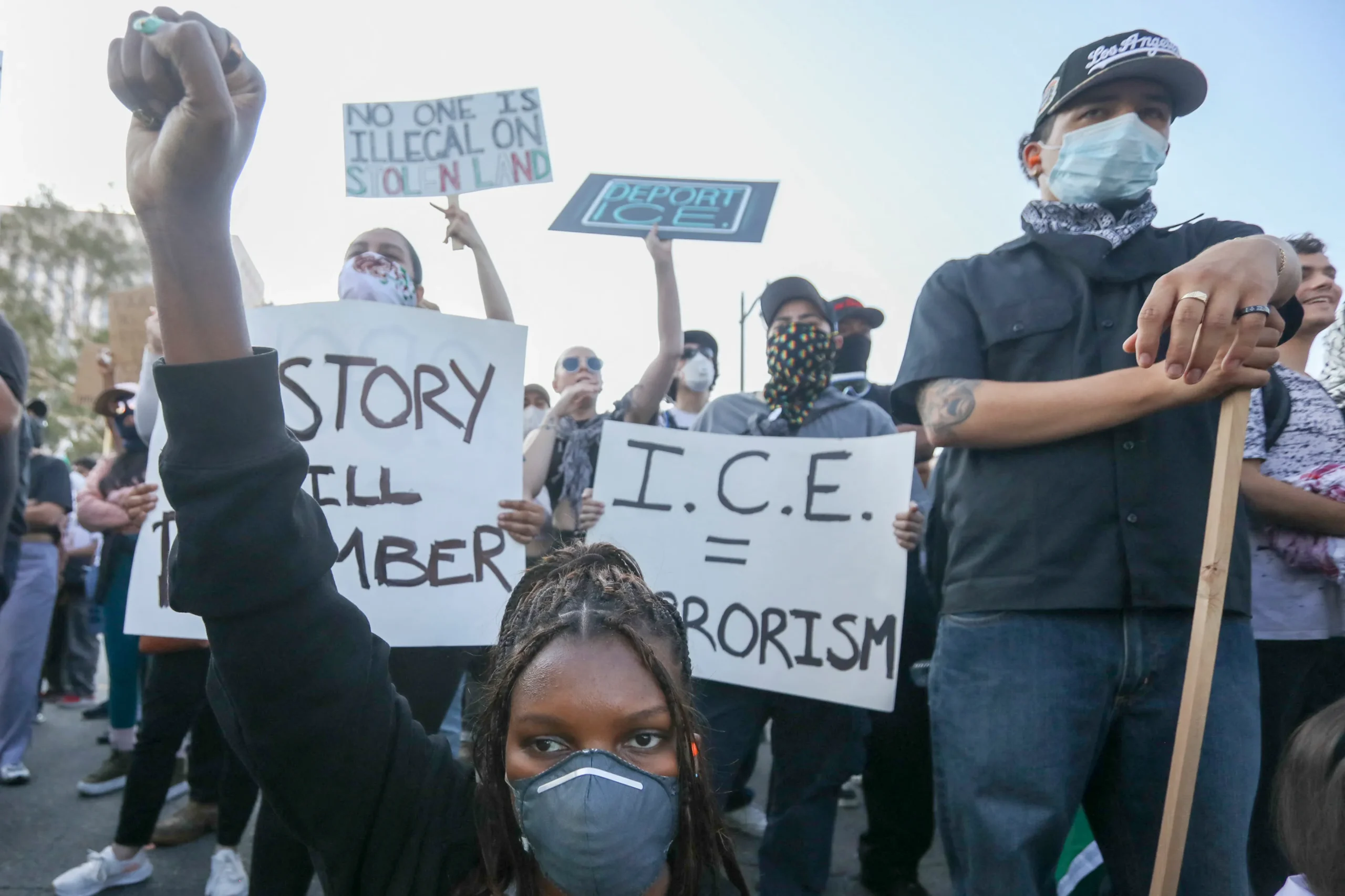
President Donald Trump’s executive order restricting entry for citizens from 12 countries has taken effect, coinciding with escalating tensions over immigration enforcement policies across the United States.
The measure, which Trump announced last week citing national security concerns, became active on Monday. The implementation occurs as Los Angeles experiences significant unrest, with protesters clashing with police and National Guard troops following increased immigration enforcement activities.
The order resurrects similar policies from Trump’s first presidency, when travelers from predominantly Muslim countries faced entry restrictions. Many affected nations currently experience ongoing conflicts and large-scale population displacement.
Initial reports from Los Angeles International Airport indicated no immediate visible disruptions in the hours following the ban’s implementation, according to the Associated Press.
The restrictions apply to citizens of Afghanistan, Chad, Eritrea, Equatorial Guinea, Haiti, Iran, Libya, Myanmar, the Republic of the Congo, Somalia, Sudan and Yemen. Additional limitations affect individuals from Burundi, Cuba, Laos, Sierra Leone, Togo, Turkmenistan and Venezuela.
Trump stated that countries facing the most severe restrictions were selected based on concerns about terrorist presence, inadequate cooperation on visa security, and insufficient identity verification capabilities. These nations also reportedly maintain poor record-keeping regarding criminal histories and experience high rates of visa overstays.
The new restrictions do not cancel previously issued visas for affected nationals, according to guidance distributed to US diplomatic missions on Friday. However, implementation procedures at entry points remain unclear, with Trump’s previous travel ban having caused confusion and travel disruptions.
Trump cited a recent incident in Colorado, where an Egyptian national who had overstayed his visa allegedly attacked individuals protesting in solidarity with Gaza captives, as justification for the new measures. The administration characterized this as a “terrorist attack” that highlighted risks posed by inadequately vetted foreign nationals.
Trump indicated that additional countries could be added to the list “as threats emerge around the world.” Egypt is not included among the restricted nations.
UN High Commissioner for Human Rights Volker Turk expressed concerns about the policy’s “broad and sweeping nature” from an international law perspective.
The travel restrictions coincide with protests in Los Angeles against immigration enforcement operations. Trump ordered deployment of 2,000 National Guard members to Los Angeles County over the weekend, bypassing California’s governor and intensifying tensions.
Thousands of demonstrators responded by flooding streets on Sunday, blocking major freeways and setting vehicles ablaze. Law enforcement used tear gas, rubber bullets and flashbangs to disperse crowds. Authorities declared downtown Los Angeles an “unlawful assembly” zone early Monday, ordering the area cleared.
California Governor Gavin Newsom has formally requested withdrawal of the National Guard deployment order. This represents the first presidential deployment of state National Guard troops without gubernatorial consent in approximately 60 years, since President Lyndon Johnson used troops to protect civil rights demonstrators in Alabama in 1965.
Trump administration officials, recognizing strong support for aggressive immigration enforcement among the president’s base, have emphasized their commitment to addressing what they characterize as an “insurrection” and “migrant invasion.”











Be the first to leave a comment